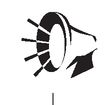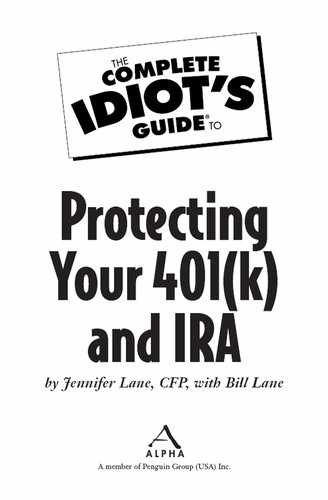Reading the Warning Signs
You are the person responsible for your retirement, so keep an eye on these important trends: Social Security benefits, tax rates, inflation, and health-care costs.
Social Security
If you’re working in a nongovernment job, Social Security taxes are withheld from your paycheck. Most government employees pay into a separate government pension instead of Social Security. If you’re self-employed, Social Security taxes are part of your self-employment tax payment.

Nest Eggs
By 2008 rules, up to 85 percent of a person’s Social Security retirement income benefit may be taxable. Workers pay Social Security tax on their first $102,000 of earnings.
The amount of Social Security retirement benefits you’ll ultimately collect is based on how much you pay into the system while you’re working. But you can’t think of Social Security as a savings account; the program doesn’t put your money away until it’s time for you to draw it out. Social Security is a pay-as-you-go system, meaning payments you make now are quickly turned into this month’s payment to current retirees. This system works fine as long as many workers are paying taxes and not too many retirees are receiving benefits.

Rainy Days
Social Security income payments increase each year based on a version of the Consumer Price Index called the CPI-W, which tracks price increases on the kinds of goods and services bought by active workers. As a retiree, your cost of living may be greater than current workers’ if expenses like health care grow faster than the CPI-W.
Unfortunately for the Social Security system’s health, the number of retirees is increasing rapidly compared to the number of workers. We can expect the Social Security Administration to compensate for this shift by altering future benefits. These changes might include increasing the age when an individual can begin drawing full retirement benefits, making a larger percentage of income benefits taxable, or making less-generous inflation increases to benefits each year. Regardless of how the government adjusts your benefit, the result is sure to be that you’ll rely more on your own savings for retirement security and less on your Social Security income.
Taxes
Many people assume their income taxes will be lower when they retire because they won’t be earning taxable wages. Unfortunately, this isn’t always the case. More of an individual’s income may be taxable after he retires than he might expect. Part of everyone’s Social Security income is taxable, and withdrawals from most retirement plans are taxable as income, too. If you have a pension, some or all of its benefits might be taxable. What’s more, income tax rates could increase by the time you retire. Higher tax rates aren’t out of the question as the government struggles to close recent budget deficits and pay a massive federal debt. Income taxes could continue to be one of your biggest expenses even after you retire. So regardless of the reasons, it’s important to consider the effect of this cost when managing your retirement accounts and planning your savings goals.

Rainy Days
If you work for the government and expect a pension but also worked for a private employer and paid Social Security taxes, there’s no guarantee you’ll collect 100 percent of both benefits. Check the Social Security website, www.ssa.gov, for a worksheet to calculate what you should receive under the so-called windfall provision.
Inflation
Planning for price increases on the things you buy—inflation—is an important part of protecting your retirement nest egg. Inflation causes nest egg damage when higher prices force you to make bigger withdrawals from your retirement accounts than you’d planned.

Nest Eggs
Many people are happy to give you advice, but you’re the one who’s most invested in the health of your retirement accounts. Hire help and pay for advice when you need it, but don’t forget that understanding your accounts and managing your investments is ultimately up to you. Stay involved. Your advisors should be partners, not sole managers of your accounts.
The government regularly measures inflation and gives reports on what’s called the Consumer Price Index or CPI. Paying attention to changes in the CPI is one way of gauging how your living expenses might be changing. Social Security benefits are adjusted every year for CPI inflation. However, many of your expenses in retirement might increase at a rate faster than the CPI. Increasing costs of home maintenance and medical care are two expenses where inflation can do heavy damage to your nest egg if you haven’t planned on making larger and larger yearly withdrawals from your accounts to compensate.
Health Care
Unforeseen medical expenses and high health insurance premiums can be a huge drain on your retirement assets, especially if you’re not in tip-top health. Some aspects of your health-care costs are within your control. Maintaining a good weight, eating good food and limiting junk food, exercising regularly, quitting smoking, and seeing your doctor regularly are all ways you can reduce your risk of high medical costs in retirement by staying healthy now. As the baby boom generation ages and puts a strain on the nation’s health-care system, health insurance premiums and the cost of health care are likely to increase. Protect your retirement nest egg by allowing for these costs in your retirement budget.
..................Content has been hidden....................
You can't read the all page of ebook, please click here login for view all page.
